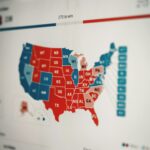Explaining Inflation
All of a sudden, inflation has become a hot topic. Gallup reports that concern about the pandemic has decreased from 21% to 13% from September to December of 2021. Meanwhile, inflation concerns have increased from 1% to 6% during the same period of time. Economic concerns in general have almost doubled from 16% to 29%.
As a result, politicians in power are trying to come up with politically acceptable inflation excuses. Federal Reserve Chairman Jerome Powell has said, until recently, that inflation is “transitory”. Joe Biden claims, “the reason for inflation is that we have a supply chain problem that is really severe.” He thinks he can affect the price of gasoline at the pump by releasing a couple days’ worth of supply from the Strategic Petroleum Reserve. Senator Elizabeth Warren blames inflation on corporate greed. Donald Trump blames free-spending Democrats who, of course, are just continuing the free-spending ways of the Trump administration.
In reality, there is only one cause for inflation. The central bank is creating new money. The Federal Reserve has increased its balance sheet from $870 billion in August 2007to $4.1 trillion in January of 2022. The Fed increases its balance sheet by creating money out of thin air to buy financial assets like bonds. That means there is 4.7 times more money circulating now than there was just prior to the real estate crisis of 2008. The Fed has more than doubled the amount of money in the economy since January 2020, just before the pandemic.
Since all this money creation has been going on since 2007, inquiring minds will want to know why inflation was relatively tame prior to this year. The short answer: it wasn’t. Inflation took place in assets rather than consumer goods and services. That’s why the stock and bond markets have soared since 2009. The stock market is 6 times its 2009 value. The U.S.10-year bond has doubled. Billions in worthless mortgage securities are now on the Fed’s balance sheet rather than on the books of Goldman Sachs and its big bank brethren.
This means that the rich have gotten richer. The wealthiest 10% of Americans now own 89% of all stocks, a record. Meanwhile the average working person is struggling to keep up with consumer inflation. And losing money on their savings. The average interest rate on a savings account is well below a half percent. Our current 7% rate of inflation is 14 times that.
Having lived through the inflation of the 1970s, I watched the Fed accommodate record Federal spending on LBJ’s Great Society and the Vietnam War. Now the Fed is accommodating spending on the real estate crisis and the government’s pandemic lockdown. In both eras, politicians and the media tried to blame the victims of inflation; oil companies, grocery stores, labor unions, and the like. Nixon instituted wage and price controls. Biden is reportedly considering the same. They didn’t work then, and they won’t work now. Then we had Paul Volcker who had the intestinal fortitude to raise interest rates to 20% to choke off inflation. Jerome Powell is no Paul Volcker.
In fact, the Fed is in a no-win situation. If they stop buying bonds and raise interest rates, they will crash the stock, bond, and real estate markets. If they don’t, inflation will continue to increase. The 10% who own 89% of the stock market and similar percentages of the bond and real estate markets will not look kindly upon the Fed killing their investment portfolios. The U.S. government already spends two thirds of its budget on transfer payments and interest on the debt. If the Fed raises interest rates enough to stop inflation, that will mean that most of the Federal budget will go to transfer payments and interest on the debt. That would leave nothing for defense, roads, courts, and all the things we’ve come to expect the government to handle. Cutting transfer payments is politically problematic to say the least.
There are alternative currencies. Gold and bitcoin come to mind immediately. Generally speaking, politicians cannot be trusted to maintain a steady supply of currency. From ancient Rome to Weimar Germany to Zimbabwe to Venezuela and countless more places, governments can be implicitly trusted to print new money to buy the votes and favor of their citizens. Let’s get politicians out of the money creation business.
Let’s let people freely choose which currency to use.




